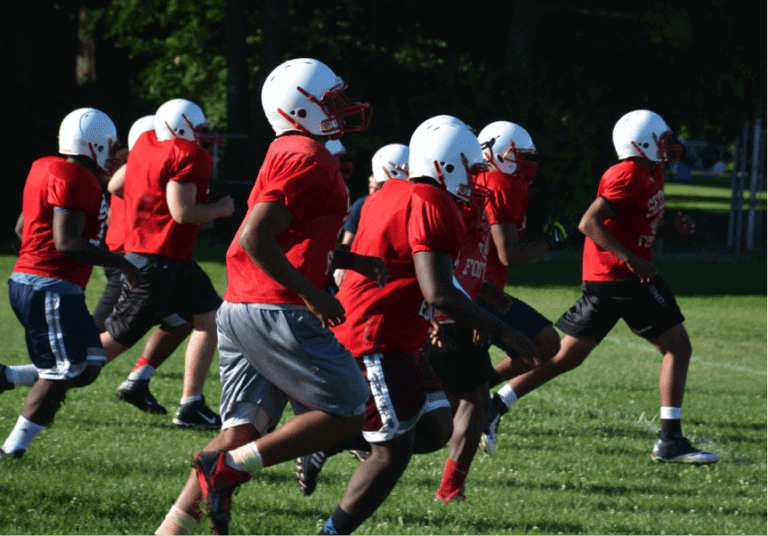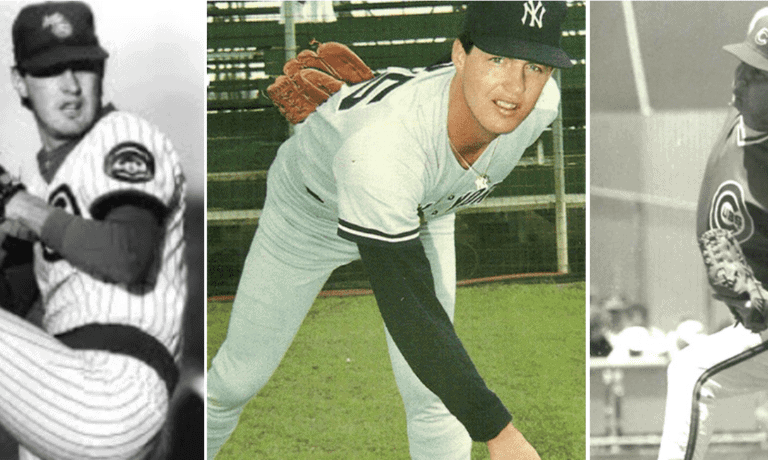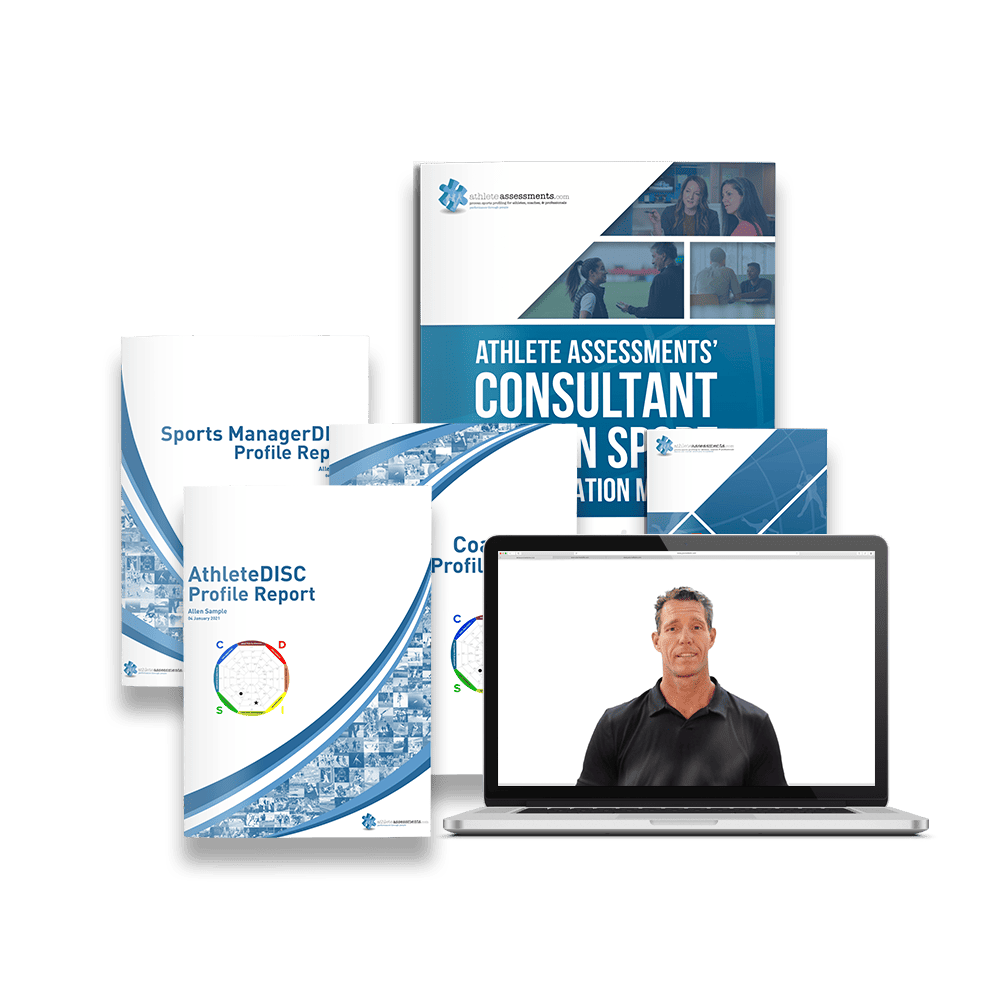In the dynamic realm of athletic performance, there are few people or organizations who possess the expertise and vision to seamlessly integrate performance tools with principles of psychology to promote development. Enter Brian Alexander, Certified Mental Performance Consultant.
Passionate about empowering individuals to thrive both on and off ‘the field,’ Brian brings a wealth of knowledge from his own experience as a professional water polo athlete, where he uncovered some of his signature strengths to be relating to people. In this spotlight, we delve into Brian’s work through his private practice, Athlete Mental Skills Coach and how he capitalizes on the use of DISC Behavioral Profiling to inform holistic athlete development.
Opening our discussion, Brian shared,
“It’s important to understand individualism, not only in terms of physical performance but also in relation to mental health considerations. I want to develop the opportunity for athletes to be proactive as well as reactive with appropriate professional resources, should mental health needs arise.
I think it’s a more informed way to set up your pursuit of goals and dreams and help educate yourself on a deeper level.”
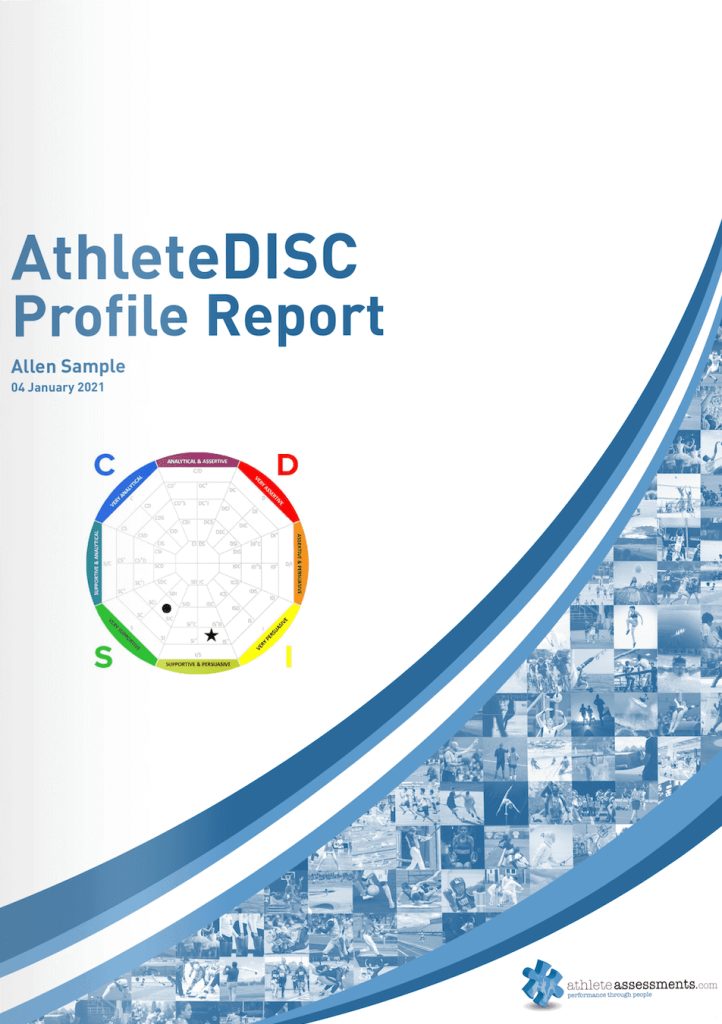
Underpinning Brian’s approach, is the idea that every facet of performance—preparation, practice, interactions with teammates and coaches, and the performance itself—is contingent on our mental approach. Therefore, evaluating behavior, the observable actions reflecting our mental approach, is a pivotal component of performance. As Brian noted, ultimately, self-awareness of this behavior serves as the starting point for development and growth.
Putting theory into action, Brian’s work with an athlete begins by first inviting them to complete their Athlete Assessments AthleteDISC Behavioral Profile. The 40-page report directs athletes to notice aspects of their own behavior detailing their preferred pace, how they communicate, and build relationships with the people around them. Simultaneously, an athlete’s individual AthleteDISC Profile report provides Brian with a tailored ‘cheat sheet’ that helps inform how he will work with the athlete in a productive and efficient way. During Brian’s initial debrief session with an athlete, he first asks them to predict what their profile will be. Then he explains that the four behavioral styles – Dominance, Influence, Steadiness, and Conscientious – each have characteristic traits.
Brian noted that when an athlete’s prediction closely aligns with their report, it reflects commendable self-awareness. He explained,
“People don’t always agree with everything in the reports which is great, because it creates an opportunity for discussion and exploration of their own behavior when they go back to practice or competition.”
Brian detailed further,
“Athletes will often bring up a certain situation with a team mate, learning a skill, or a goal they have. We then discuss this in terms of the DISC language, identifying aspects related to why things are unfolding the way they are for the athlete or why a particular decision was made. I might say something like, ‘Maybe this is your Dominance trait coming to the forefront’, or ‘You’re higher in Steadiness, so perhaps you’re inclined to slow things down’.”
DISC Behavioral Profiling enables athletes to take greater ownership of their behaviors both in their sporting and personal performance. Brian also explained that he uses the DISC model to assist athletes in recognizing behaviors in other people,
“DISC helps people put language around what they are seeing and what it means in comparison to their own profile and then, how they can meet in the middle to work together.”
“A lot of times when we see stress between teammates or athletes and coaches, they just don’t understand what tensions naturally exist between their adapted or natural styles. I think for teams as a whole, DISC provides a tangible methodology to foster team chemistry and allows athletes and coaches to comprehend each other and build more effective relationships.”
Various research including the 2008 Canadian Olympic study, affirms these insights shared by Brian, highlighting that the coach-athlete relationship, closely followed by athlete self-awareness, plays a pivotal role in winning medals and achieving personal best performances.
We’ve previously written an article on the coach-athlete relationship as a performance factor, read it here.
Reflecting further on the transformational benefits of the Athlete Assessments DISC Profiles, Brian explained that mechanisms within individual profiles can alert athletes and coaches to the presence of performance stress. He added,
“A major aspect of this is an individual’s well-being, not only as an athlete but as a person. We can leverage the profiles to help people grasp why they are experiencing certain feelings and where these feelings may originate from. This understanding empowers them to redirect their efforts in a positive direction.”
When working with their athletes, coaches are always looking for ways to give more effective feedback and Brian details how using the 360-degree Observer Feedback capability can help.
“Through the Observer Feedback tool we can compare the athletes’ self-perception with how coaches view their performance tendencies, which is truly a valuable thing.”
In addition to his work in private practice, Brian served as the mental skills coach for the Team USA Water Polo team at the 2020 Tokyo Olympics.
Brian also serves as the Director of Performance Mind within the University of California San Diego’s Athletics Performance Unit. Excitingly, they plan to integrate the use of Athlete Assessments’ DISC Profiles across the entire athletics department.
As we know, an athlete’s performance at any moment is a snapshot of their entire being; mental skills, physiological adaptation, behavioral preferences, and nutrition. Thus, leveraging improvement in any of these spheres, opens up exciting possibilities for enhanced performance. Watch this space!

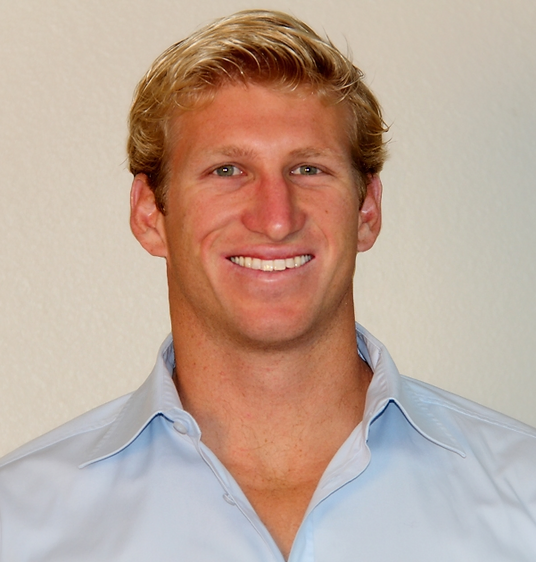
Biography for Brian Alexander
Brian is a Certified Mental Performance Consultant who specializes in athlete development through his private consultancy, Athlete Mental Skills Coach. Brian has worked with every level of athlete, from amateur to Olympic, as well as professionals within the business and medical industry.
After a successful career as a professional water polo player, which saw him compete in the United States Men’s National Water Polo team, Brian served as the mental skills coach for the USA Men’s Water Polo team at the Tokyo 2020 Olympic Games. In addition to his work in private practice, he also serves as the Director of Performance Mind for University of California San Diego’s Athletics Performance Unit. Brian is certified in the use of Athlete Assessments’ DISC Profiles, and is an approved mentor of the Association for Applied Sport Psychology, where he mentors a number of high-level mental performance consultants through their certification. As a university student, Brian obtained a Bachelor’s degree in Psychology from the University of California Santa Barbara, before completing his Master’s in Sport Psychology at John F. Kennedy University.

Biography for
Brian Alexander

Brian is a Certified Mental Performance Consultant who specializes in athlete development through his private consultancy, Athlete Mental Skills Coach. Brian has worked with every level of athlete, from amateur to Olympic, as well as professionals within the business and medical industry.
After a successful career as a professional water polo player, which saw him compete in the United States Men’s National Water Polo team, Brian served as the mental skills coach for the USA Men’s Water Polo team at the Tokyo 2020 Olympic Games. In addition to his work in private practice, he also serves as the Director of Performance Mind for University of California San Diego’s Athletics Performance Unit. Brian is certified in the use of Athlete Assessments’ DISC Profiles, and is an approved member of the Association for Applied Sport Psychology, where he mentors a number of high-level mental performance consultants through their certification. As a university student, Brian obtained a Bachelor’s degree in Psychology from the University of California Santa Barbara, before completing his Master’s in Sport Psychology at John F. Kennedy University.
Where to from here?
If, like Brian, people depend on you to bring them reliable and tested tools which put them ahead of their competitors, Athlete Assessments’ Consultant Program is designed and tailored to your needs and prior experience to do just that. We also encourage you to take a look at our online library of free resources and contact us if we can do anything to help you be your best!
Recommended Articles
The coach-athlete relationship, a research backed non-negotiable when it comes to getting the best and sustained performance out of your athletes.
If there was a shopping list of everything an athlete or coach wants in a trusted advisor or performance coach, the entire list can be checked off with all that Bob Tewksbury brings. Want someone who has excelled at the highest level and under enormous pressure?
Coaching and successfully developing elite athletes requires dedicated attention to mental skills development – self-awareness, self-belief, identity and resiliency, skills which benefit athletes in competition and in life. Kyle McDonald, Mental Performance Coach, General Manager and Performance Director of the Weyburn Gold Wings, shares the process of mental skills development


